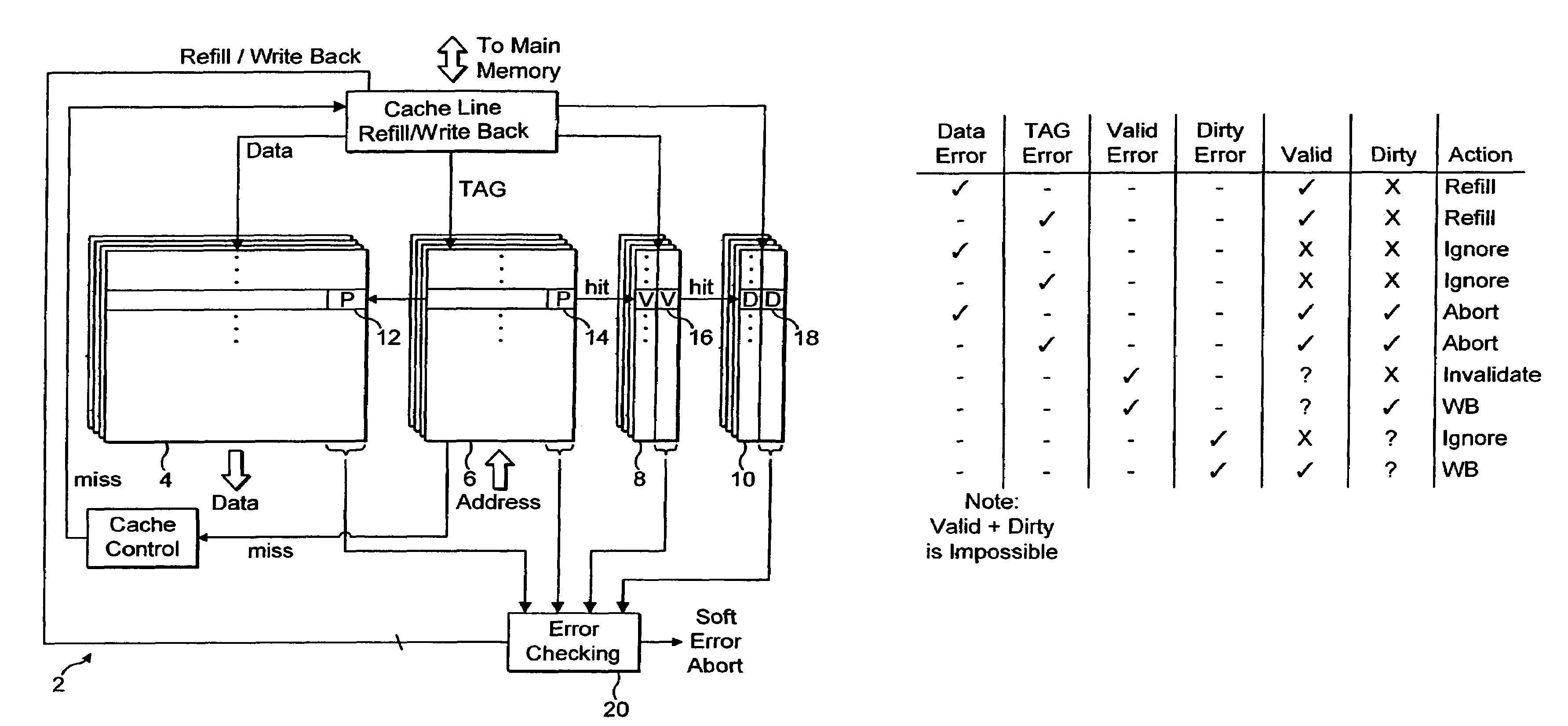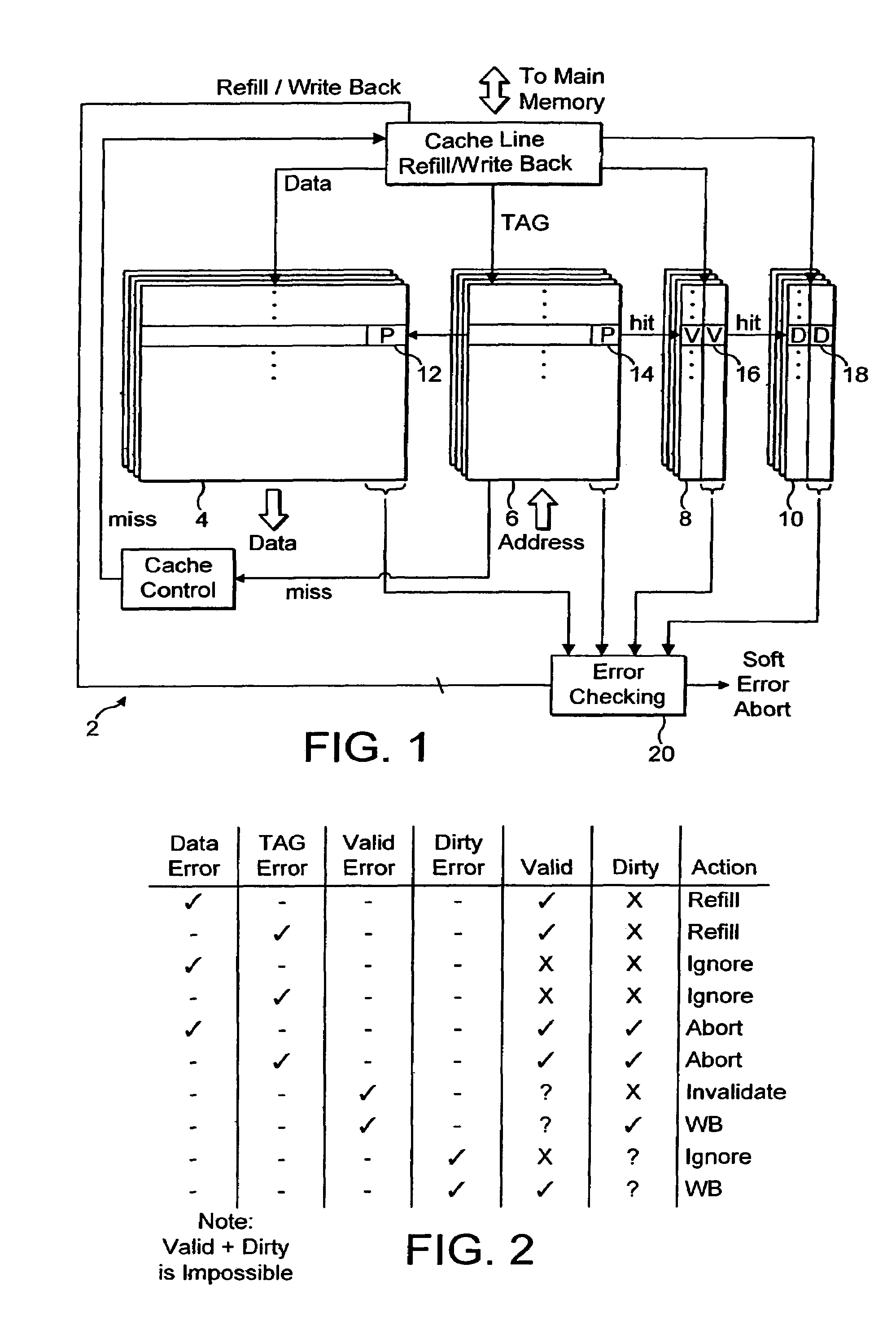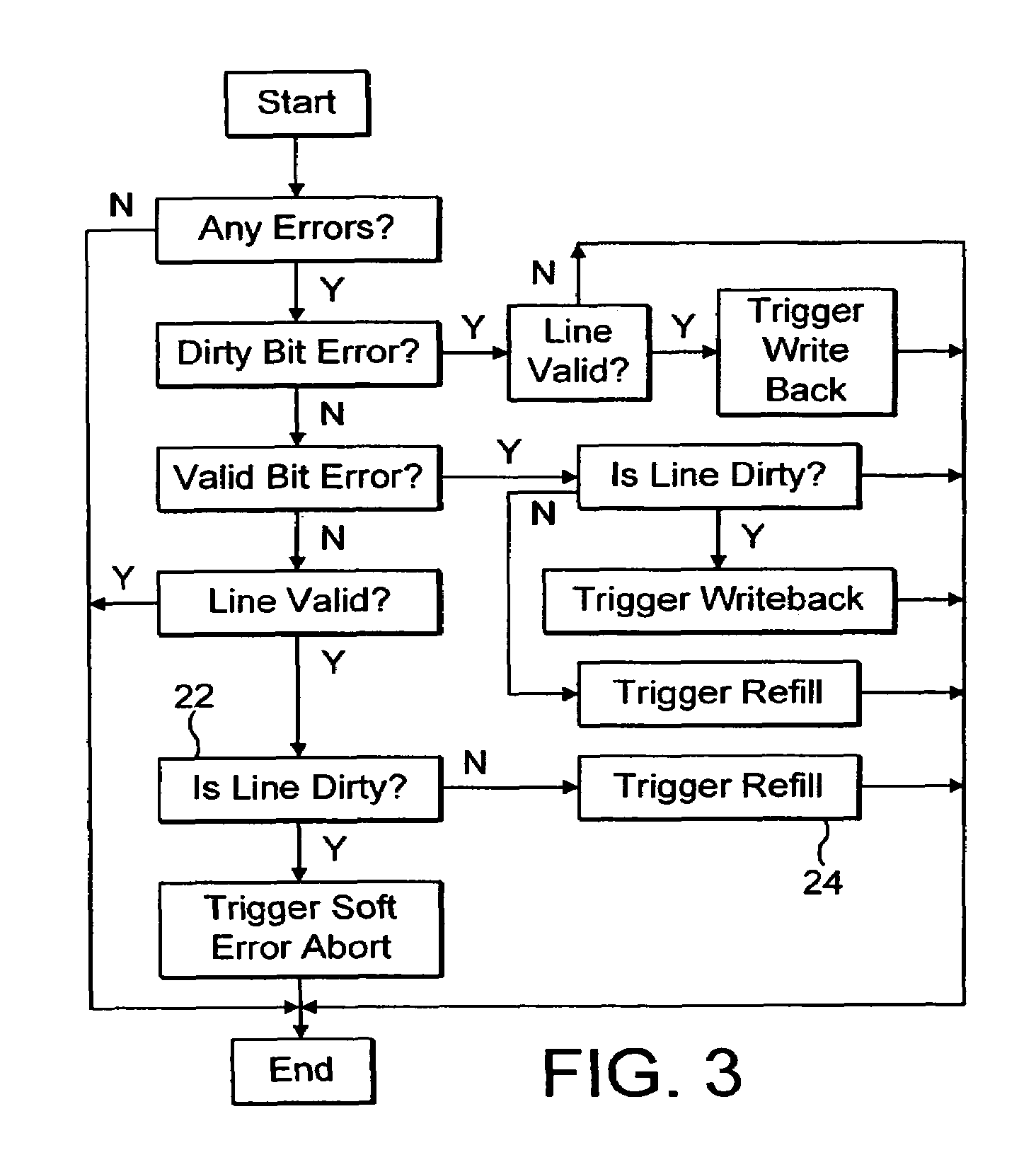Error correction within a cache memory
a cache memory and error correction technology, applied in the field of data processing systems, can solve the problems of inability to accurately calculate and update the error, the error of this type is particularly significant in critical situations, and the cache memory is becoming increasingly prone to so-called “soft errors”
- Summary
- Abstract
- Description
- Claims
- Application Information
AI Technical Summary
Benefits of technology
Problems solved by technology
Method used
Image
Examples
Embodiment Construction
[0033]FIG. 1 illustrates a cache memory 2. This illustrated example is a 4-way data cache memory. The present techniques may be used with both single way and multiple way caches. The present technique is also applicable to other types of cache memory such as non-associative caches, instruction caches, Harvard caches, unified caches and the like. As illustrated in FIG. 1, the cache 2 includes a data portion 4, a TAG portion 6, a valid bit portion 8 and a dirty bit portion 10. This basic type of cache arrangement together with non error related mechanisms for refilling, writing back and controlling such a cache are known in this technical field and will not be described further herein.
[0034]The present technique builds upon the known form of cache memory by adding error checking bits to each cache line. More particularly, parity bits 12 are added to the data portion 4. In this example embodiment, there are eight parity bits per double-word giving thirty two parity bits for a thirty tw...
PUM
 Login to View More
Login to View More Abstract
Description
Claims
Application Information
 Login to View More
Login to View More - R&D
- Intellectual Property
- Life Sciences
- Materials
- Tech Scout
- Unparalleled Data Quality
- Higher Quality Content
- 60% Fewer Hallucinations
Browse by: Latest US Patents, China's latest patents, Technical Efficacy Thesaurus, Application Domain, Technology Topic, Popular Technical Reports.
© 2025 PatSnap. All rights reserved.Legal|Privacy policy|Modern Slavery Act Transparency Statement|Sitemap|About US| Contact US: help@patsnap.com



